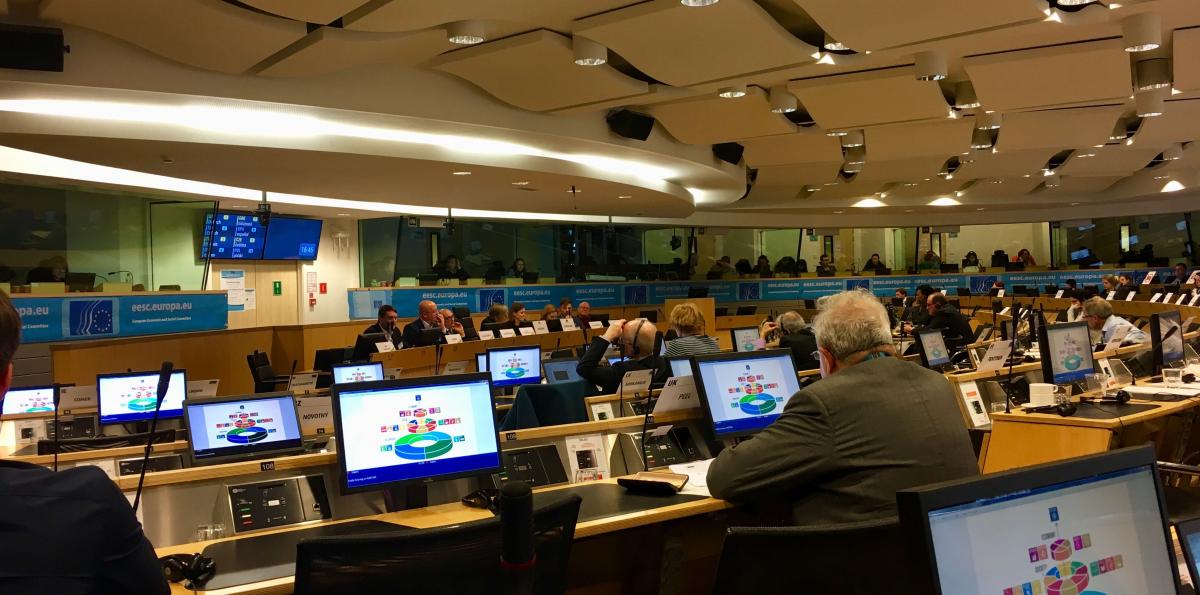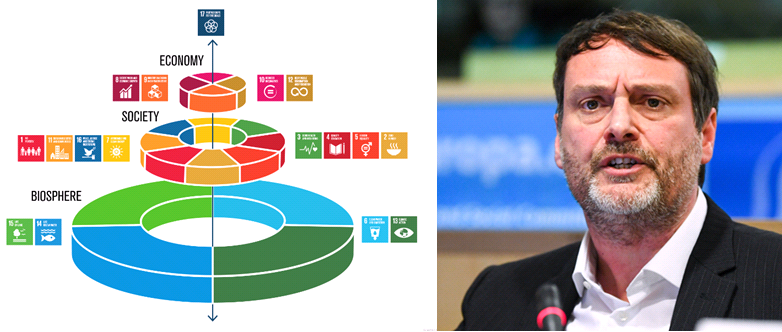Towards an EU sustainable future: the missing sense of urgency
Luc Bas, Director of the European Regional office, speaking at the Public hearing on the EU Reflection Paper ‘Towards a Sustainable Europe by 2030’ using the SDG wedding cake to show that the biosphere is the foundation of sustainable development.

Photo: Towards an EU sustainable future: the missing sense of urgency
The recent European Commission’s reflection paper ‘A sustainable Europe by 2030’ outlines three possible scenarios, however “a fourth scenario, the one of urgency, is missing” said Luc Bas, Director of the European Regional Office speaking at a Public hearing organised by the European Economic and Social Committee (EESC) in Brussels on 27 February.
 Photo: Twitter, EESC Sustainable Development
Photo: Twitter, EESC Sustainable Development
Taking UN’s Sustainable Development Goals (SDGs) as a guide, the paper outlines three scenarios to work towards sustainability:
- An overarching European SDGs strategy to guide all actions by the EU and Member States
- Continued mainstreaming of the SDGs in all relevant EU policies by the Commission, but not enforcing Member States actions
- Putting enhanced focus on external action while consolidating current sustainable ambition at EU level
The NAT Section (Section on Agriculture, Rural Development and the Environment) of the EESC debated the EU Reflection Paper and the way forward with representatives from the EU institutions and civil society stakeholders. While there was consensus that scenario 1 is the best way forward with a transition that is inclusive and comprehensive, it will take time to develop and implement an overarching European SDGs strategy, thus participants argued for direct action in tandem, for which elements from scenario 2 and 3 could be used.
Furthermore, the reflection paper discusses that sustainable development ‘is a complex issue, but a simple concept’: it is about making sure that our economic growth allows us to maintain a model that is fair to all of society and operates within our planetary boundaries. “The economy should serve society and not the other way around”, said Luc Bas Director of the European Regional Office. As the SDG wedding cake shows (see picture), the biosphere forms the foundation of sustainable development and we need to value it in our financial and economic decision making accordingly. However, surprisingly, the reflection paper fails to emphasize the importance of well-functioning ecosystems in delivering the EU 2030 vision.
With his final words, Peter Schmidt (co-rapporteur of the opinion NAT/760 and President of the Sustainable Development Observatory) addressed that distribution is key to sustainable development. He referred back to the SDG wedding cake and pointed out we should be a family in which we all get a fair share of the cake, that is how we should share the world.
IUCN is an observer in the EU Multi-Stakeholder Platform for the implementation of the SDGs. The contribution of the EU Multi-Stakeholder Platform to the reflection paper can be found here.
